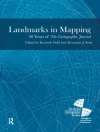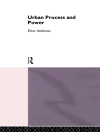This book explores questions related to social and cultural sustainability of coastal communities in transition through the lens of childhood. Contributors explore diverse local and national contexts spanning several countries aiming to shed light on the shifting and dynamic interplay between education, knowledge production, society and working life in coastal environments from an intergenerational perspective. Key points that are disclosed are:
- the current threat to the social and cultural sustainability of coastal communities in different local and national contexts, and the reason they must be preserved
- the centrality of processes of inter generational transmission of local knowledge to the preservation and development of sustainable coastal communities
- the central role of children and young people as actors in creating sustainable livelihoods, economies and knowledge in coastal communities for the future?
- the practices acrossdifferent country contexts
The book will address the challenges to sustainability experienced by local communities in light of local, national and global social and economic changes. Looking at these challenges cross-nationally and through the lens of childhood, and knowledge production across generations, will provide for a much-needed perspective in ongoing discussion on sustainability in coastal communities.
Cuprins
Chapter 1. Exploring Coastal Societies and Knowledge in Transition Across Generations (Kjørholt et al.).- Chapter 2. Coastal Communities Past, Present and Future? The Value of Social and Cultural Sustainability (Bessell and Kjørholt).- Chapter 3 Growing up in a Norwegian Coastal Town in the 19th Century. Work and Intergenerational Relations (Ellen Schrumpf).- Chapter 4 ‘I’m Treading Water Here for My Generation:’ Gendered and Generational Perspectives on Informal Knowledge Transmissions in Irish Coastal Communities (Crummy and Devine).- Chapter 5 Local Knowledge and Change in a Small Fishing Community in Cyprus: Implications for Social and Cultural Sustainability (Theodorou).- Chapter 6 The shifting landscape of childhood and literacies of the sea in Mid-Norway: Sustaining the future by valuing the past? (Kjørholt).- Chapter 7 Learning from the coast.Youth, family, and local knowledge in the Faroe Islands (Firouz Gaini).- Chapter 8 Sustainability, Knowledge and Social Identity: Commonalities, Conflicts and Complexities in Coastal Communities in Tasmania, Australia (Sharon Bessell).- Chapter 9′ I shall be a fisherman’. Learning from the past, imagining the future. Observations from a viable community in North Norway (Harald Beyer Broch).- Chapter 10 The sea lost and found. Changes and interdependencies in a coastal community in Denmark (Gullov and Gullov).- Chapter 11 Blue Education. Exploring Case studies of place-based and intergenerational learning on Norwegian Islands (Johansson et al). Chapter 12. Becoming Coastal in a Minor Key. Concluding Chapter (Stuart Aitken).
Despre autor
Anne Trine Kjørholt is Professor in Childhood Studies at Norwegian University of Science and Technology, NTNU, and affilated Professor in education, aesthetic and leadership at Universiy of South East Norway. She is currently head of the programme; Norway as a Sea Nation, in NTNU’ interfacultary thematic research priorities; Oceans. She was Director of Norwegian Centre for Child Research from 2012-2016, Vice Dean for Research 2013-2015, former academic coordinator of Mphil program in Childhood Studies and of the interdisciplinary Ph D program in Child Research. She has extensive experiences in coordinating interdisciplinary and external funded research projects in collaboration with international researchers, including projects in Ethiopia and Zambia. Research interests include: childhood as a social and symbolic space, children’s rights, early childhood;poliies
She has published widely. Among anthologies she has edited are: Children as Citizens- in the best interest of the child? (University Press) Early Childhood and Development work. Theories, Policies and Practices (co-edited with Helen Penn), Children, young people and local knowledge in Ethiopia Rights, Livelihoods and Generations, Akademica (co-edited with Tatek Abebe). The modern child and the flexible labour market. Palgrave (co-edited with Jens Qvortrup). Elected member of several boards, currently of the National Board Save the Children.
Sharon Bessell is a Professor at the Crawford School of Public Policy at The Australian National University. Sharon is the director of the Children’s Policy Centre, and of the Poverty and Inequality Research Centre. She is co-presenter of Policy Forum Pod. In 2019 she was named as one of the Australian Financial Review’s Women of Influence. She is originally from Tasmania and now lives in Canberra.
Sharon’s research interests revolve around issues of social justice and human rights, focusing on three broad areas: (i) social policy, social justice and the human rights of children; (ii) childhoods in transition in coastal and regional communities; (iii) the gendered and generational dimensions of poverty and inequality. She is recognised internationally as a leader in rights-based, child-centred research methodologies, and has published widely on undertaking research with children.
Sharon is a Senior Fellow of the Higher Education Academy, and teaches courses on social policy, poverty reduction, globalisation, global development, children’s human rights, and gender.
Dympna Devine is Full Professor of Education at UCD School of Education, and Vice Principal for Research Innovation and impact in the UCD College of Social Sciences and Law, Dublin, Ireland. She works at the intersection of sociologies of education and childhood, with a specialist interest in research related to children’s rights, equalities and social justice at the intersection of their everyday lives at home, school and in their local communities. She has published widely in these areas, in addition to a longstanding focus on migrant children’s experiences in schools. She is currently working on two mixed methods longitudinal studies of children’s school and community lives in Ireland (www.cslstudy.ie) and in Sierra Leone (www.safelearning.ie). She is executive editor of the British Journal of Sociology of Education and Editor of the Routledge book series on Migration and Education.
Firouz Gaini is professor in anthropology at the University of the Faroe Islands. He is a co-editor of Island Studies Journal, BARN (Nordic Childhood Journal), and Fróðskaparrit (Faroese Scientific Journal). His fieldwork is from the Faroe Islands, Greenland, and Japan. He has published widely on the topics of young people’s everyday lives and futures, fatherhood and masculinities, and small island communities in articles and books. He is co-editor of the volume Gender and Island Communities (Routledge 2020).He is the Research Leader of the Faculty of History and Social Sciences and a Deputy Member of the Board of the University of the Faroe Islands. Gaini was affiliated to the Norwegian Centre for Child Research, NTNU, in Trondheim 2012-2015. Besides the academic literature, is also the author of collections of essays and short stories. He currently lives in Torshavn, Faroe Islands.
Spyros Spyrou is Professor of Anthropology at European University Cyprus. His research interests include children’s identities as they intersect with nationalism and questions of borders in conflict societies and children’s role as political actors in the context of climate change activism. He also has an ongoing interest in questions of children’s participation in research and knowledge production in childhood studies. He has coordinated and participated in several national and international research projects and his research has been funded by the Wenner-Gren Foundation for Anthropological Research, the European Commission, the United Nations Development Programme, the Cyprus Research Promotion Foundation, the Office of the Commissioner for Children’s Rights in Cyprus, and the A.G. Leventis Foundation through the Hellenic Observatory at the LSE. He is the author of Disclosing Childhoods: Research and Knowledge Production for a Critical Childhood Studies (2018, Palgrave Macmillan) and co-editor of Reimagining Childhood Studies (2019, Bloomsbury) and Children and Borders (2014, Palgrave Macmillan). He is an Associate Editor of the Sage Encyclopedia of Children and Childhood Studies, a co-editor of the journal Childhood (Sage), a member of the editorial boards of Children and Society and Wheelock International Journal of Children, Families, and Social Change, and a co-editor of the book series Studies in Childhood and Youth (Palgrave).












